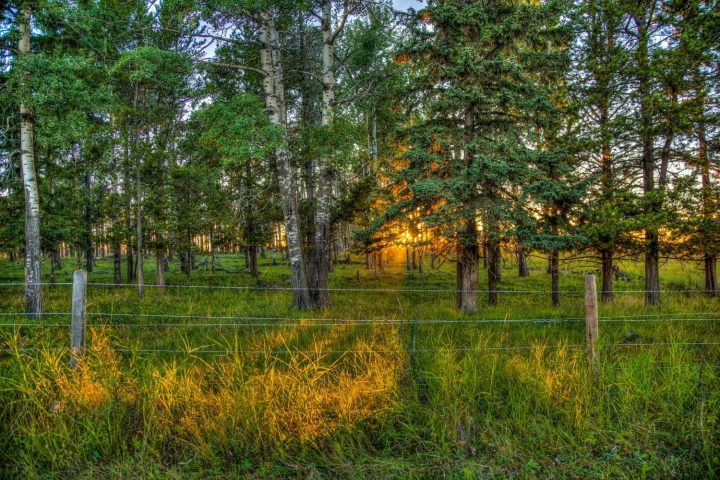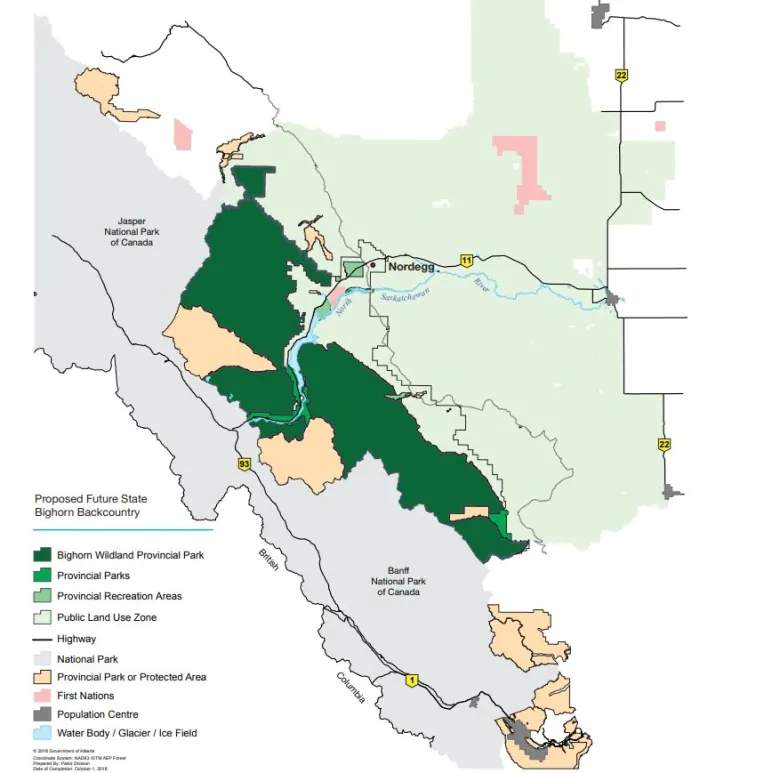The Alberta government is coming back around on the idea of having public consultations for the Bighorn Country project, after cancelling them earlier this week. Environment Minister Shannon Phillips now says some events will be rescheduled.

The reconsideration comes after a decision on Saturday to cancel the sessions, because of safety concerns due to allegations that some attendees had been harassed for speaking their minds.
There was a strong backlash, both online and in the form of a rally in Drayton Valley on Monday, where protesters voiced anger over what they called a lack of proper consultation.
Phillips changed her tune on Tuesday, tweeting that telephone town halls in Drayton Valley, Edmonton, Red Deer and Sundre will go ahead as planned, and the public consultations are being reworked.
“We are also working to reschedule the public information sessions in the days ahead for each of those communities if we can ensure public safety,” Phillips tweeted.
Global News reached out to Phillips for further clarification.
Where was Plan B?

Get breaking National news
Janet Brown, a Calgary-based political analyst, said she was surprised when the province cancelled the consultation — she thought they meant to postpone it.
“Cancelling public consultation is never a good idea, particularly when you’re supposed to be the compassionate, caring party,” Brown said.
“The idea that you would cancel a public consultation is going to give voters the idea that you’re willing to listen to some opinions but you’re not willing to listen to all opinions.”
Scrapping it without a Plan B was a mistake, Brown said. The backlash wouldn’t have been quite as severe if consultations were postponed. She said they should have found a workaround to assess public opinion that doesn’t put anyone at risk.
“If public safety were truly at risk, then cancelling and/or postponing the public consultation was the right thing to do… I think the right reaction from government would’ve said, ‘We’re going to put this on pause until we can regroup and come up with a more constructive way to gather public input,'” Brown said.
“They threw their hands up and they said, ‘We can’t do this.'”
Damage control
Phillips’ tweet is damage control, Brown said, especially since there are enough people who are angry — not just in the affected area.
“The NDP has this pattern of doing insufficient public communication with people who live outside the two big cities,” she said.
This pattern was established early on in the administration, Brown said, with the lack of consultation on the farm workers safety bill — rural Alberta pointed out how close they felt to the issue.
“I can imagine that a lot of people all over the province who live in small cities, who access rural areas on a regular basis — they’re going to take umbrage at the fact that the government is coming in with the attitude that they know better how to manage the spaces these people who live locally use than they know themselves.”
Aside from farm safety and Bighorn Country, Brown cited the carbon tax and coal-fired power plants closures as examples to rural dwellers that the NDP doesn’t get what it means to live in a small town.
“Another proof point that the Alberta government doesn’t understand the mindset of rural Alberta,” she said.
Proposed plan for Bighorn Country
Late last year, the NDP proposed the creation of four provincial parks, four provincial recreation areas and a new public land use zone for the Bighorn area.
Bighorn Country runs along the slopes of the Rocky Mountains, to the west of Rocky Mountain House and to the east of Banff and Jasper National Parks.
The government plans to spend $40 million over the next five years creating campgrounds, hiking trails and trails for off-highway vehicle use such as ATVs and dirt bikes.
The Bighorn plan is supported by 37 former top provincial biologists in a letter sent to the premier last week.




Comments
Want to discuss? Please read our Commenting Policy first.